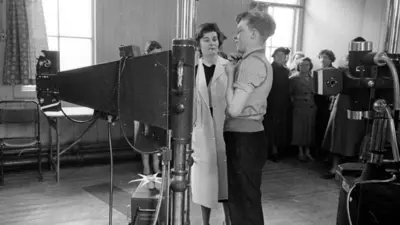We've updated our Privacy and Cookies Policy
We've made some important changes to our Privacy and Cookies Policy and we want you to know what this means for you and your data.
Scottish independence: Does it take two to separate?
Image source, PA
- Author, Nick Robinson
- Role, Political editor
"Here we go again... another Tory-led government interfering in Scotland".
That is how Alex Salmond's Deputy, Nicola Sturgeon, responded to the news that David Cameron wants to give the Edinburgh government the legal power to hold a referendum - but only with strings attached.
At issue here is a very simple principle. The government in Westminster is saying: "It takes two to separate".
In other words, breaking up the UK is not a matter for Scotland alone. In so doing, they are echoing the behaviour of the Canadian government in the face of repeated attempts by Quebec to secede.
Tortuous process
After two referenda were held in Quebec - one in 1980 and one in 1995 - and after a painfully close result - 50.58% against versus 49.42% in favour, the Canadian Parliament passed a Clarity Act.
It gave the Canadian House of Commons the power to decide whether a proposed referendum question was considered clear before any vote, to judge whether a clear majority for change had been expressed and to override a referendum decision, if it felt the referendum violated any of the tenets of the Clarity Act.
It is a reminder that, were Scots to back independence, this would mark the beginning and not the end of a long, tortuous process of negotiation between the Scottish and Westminster governments - over currency, the monarchy, the armed forces, North Sea oil revenues, pension rights and much more besides.
Unionist politicians believe the more they can force the electorate to focus on that now, the less likely Scots will be to back the idea.
The reason the Scottish Secretary is planning to unveil his approach this week is because the Scotland Bill - which gives the Scottish Parliament some new powers - returns to the House of Lords in a couple of weeks.
Passionate Unionists in both the Tory and Labour parties are lining up a series of amendments designed to limit Alex Salmond's freedom of movement.
The Coalition wants to get in first.
Top Stories
More to explore
Most read
Content is not available








